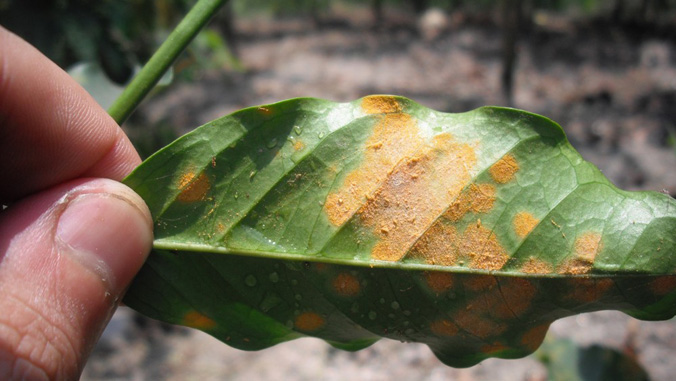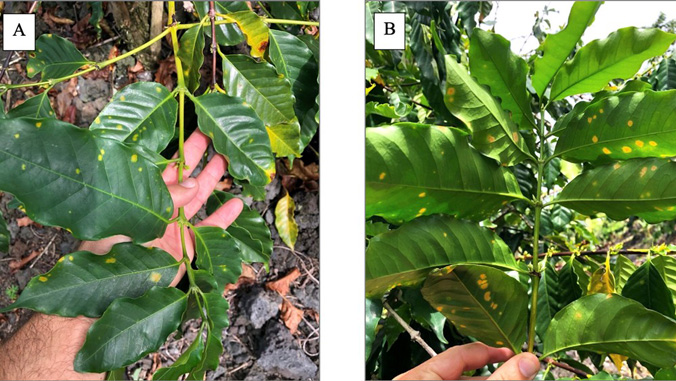
The COVID-19 pandemic will likely cause a spike in coffee leaf rust (CLR), a disease with the potential to decimate the global coffee industry, according to a https://hilo.hawaii.edu/ geographer. Chris Knudson, an assistant professor of geography, recently co-authored a study that addresses how the socioeconomic impacts from COVID-19 could lead to the re-emergence of another CLR epidemic.
“We describe how past CLR outbreaks have been linked to reduced crop care and investment in coffee farms, as evidenced in the years following the 2008 global financial crisis,” said Knudson.

Hawaiʻi-grown coffee is the second most valuable commodity produced in the state, with an annual production of more than $48 million. There are approximately 900 coffee farms throughout the islands.
Knudson and fellow researchers discuss relationships between CLR incidence, agricultural practices, global economics and local effects. The study contextualizes how current COVID-19 impacts on labor, unemployment, stay-at-home orders and international border policies could affect farmer investments in coffee plants and create conditions favorable for future outbreaks.
In 2020, CLR was confirmed on Maui, Lānaʻi and Hawaiʻi Island. The potentially crippling discovery arrived at a time when the local agricultural community was already struggling with systemic socioeconomic disruptions brought on by the pandemic.
“CLR was found in Hawaiʻi for the first time last October,” said Knudson. “Until then, Hawaiʻi was the only major coffee-growing region without CLR.”
According to the Cooperative Extension Service at UH Mānoa, coffee leaf rust is one of the most devastating pests of coffee plants and is established in all major coffee growing areas of the world. The first observable symptoms are yellow-orange rust spots, appearing on the upper surface of leaves. On the underside of the leaves, infectious spores appear resembling a patch of yellow- to dark orange-colored powder.
“By increasing investments in coffee institutions and paying smallholders more, we can create a fairer and healthier system that is more resilient to future social-ecological shocks,” Knudson added.
The study is co-written by Kevon Rhiney (Rutgers University), Zack Guido (University of Arizona), Jacques Avelino (Plant Health Institute of Montpellier, Turrialba, Costa Rica), Christopher M. Bacon (Santa Clara University), Grégoire Leclerc (French Agency for Agricultural Development Research, Montpellier, France), M. Catherine Aime (Purdue University) and Daniel P. Bebber (University of Exeter).
For more go to UH Hilo Stories.
—Story by Susan Enright


